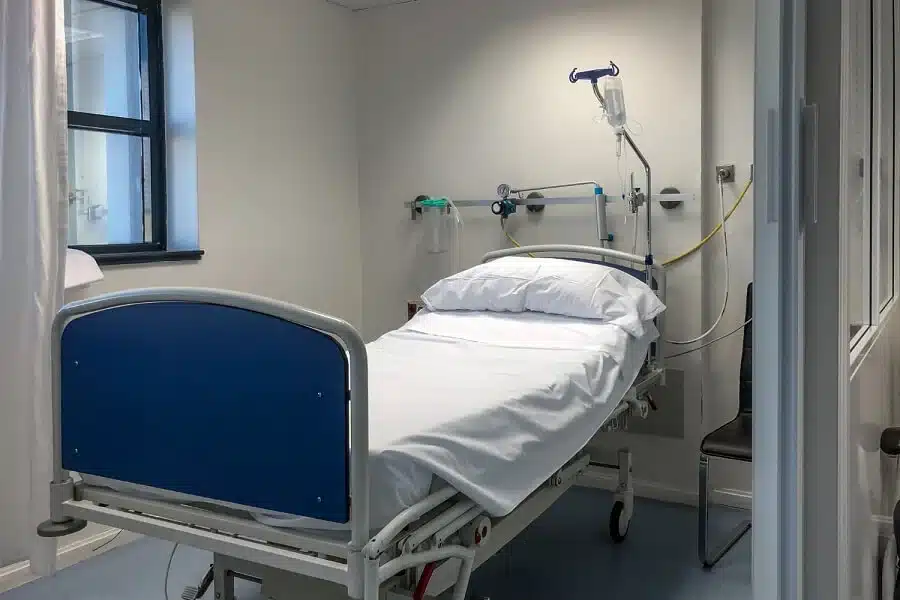Yes, I will go to rehab, but only for a week! The considerations of rapid detox
April 30, 2024
3:53 pm

First, I would never advise anyone to do this. While it is possible, only a very few centers will take clients for a week, and only in limited circumstances.
For clients dependent on stimulants such as cocaine, that do not require medical intervention (detox) then it is possible. However, and while I am not a therapist, once someone has settled in and got the hang of the groups and the programme, it is time to go home. Admission, on day one, is usually in the afternoon and thus, if a client is in a poor physical and emotional state, it could be the next day before they are receptive to the groups being run. This, again, depletes the time available.
For alcohol clients only those whose consumption can be definitively managed within seven days can be admitted. Thus, this would normally be the same cohort as those who would have treatment at home: 30 units a day, maximum. Even that is pushing the boundaries, to a degree.
Some clients will, unfortunately, give information to admissions teams to fit the criteria for a week’s admission. This puts them at a disadvantage, and I would respectfully suggest a center would be within their rights to refuse admission when a client arrives, and it is clear the problem is more advanced than initially described. Some centers offer ten-day admission. Most will only take clients for a minimum of two weeks.
All centers operate on either a 12 step AA/NA/CA https://www.alcoholics-anonymous.org.uk/ premise or an 8 stage SMART https://smartrecovery.org.uk/ based model: These are systemic, and clients move along the steps/stages while in treatment, so they can continue with their progress on discharge. A very short admission would not give a client much time to move along with either model. However, there is also the counter argument that any time a client can spend in a sober, therapeutic environment is an advantage, and I would agree.
Some clients ask for rapid alcohol detox. This is not something that should ever be considered. The process involves sedating patients with anesthetic drugs while using large doses of opioid antagonist drugs. It can be very costly, risky ,and does not address the underlying issues as to why someone is drinking: Avoid like the plague. It is widely available in the US .Similarly, clients ask about rapid opioid detox programmes, which are not dissimilar in their approach to rapid alcohol detox. The process is known as anesthesia-assisted rapid opiate detoxification (AAROD). I would strongly advise clients not to engage in this method of treatment. There have been a number of fatalities associated with this treatment modality in New York City: https://www.cdc.gov/mmwr/preview/mmwrhtml/mm6238a1.htm The risks associated with rapid opioid detoxification are intensified because when the client leaves treatment, ordinarily after five days, they will have no tolerance for opioids and, possibly, significant cravings: A dangerous combination. As for benzodiazepines, there are services, especially in America that offer a similar process using the drug flumazenil https://thecolemaninstitute.com/about-addiction/faqs/rapid-benzodiazepine-detox-faqs/ Once again, I would not recommend this. I do not know of any centers in the UK that would offer such a course of treatment. At the very least, a client would need to be admitted to a medical facility with close supervision from an anesthetist https://drvorobjev.com/en/benzodiazepine-detoxification/
Rapid detox is just that. It does not give the client any opportunity to explore the reason as to why they need help. A solely medical approach does not engage the client in any therapeutic process which would suggest a far higher risk of relapse.

Recent Posts

How Our Addiction Recovery Service Can Support Your Rehabilitation
Ready to start your journey towards recovery? Whether you’re looking for a residential rehab centre, or are interested in recovery at home, findmearehab.net can offer free and impartial advice. Our expert Paul provides a wide range of services to help you break free from addiction, including: Free and impartial rehab advice When looking to find…
Total SEO
2:05 pm, June 3, 2024

Get The Best Alcohol Addiction Treatment For Your Needs
One of the challenges of alcohol addiction is that it can be extremely complex, but it’s also highly treatable. However, treatments need to be tailored to the needs of the individual, and finding the best clinic is key for your recovery. Our clinicians provide advice on a range of issues, including information on alcohol addiction,…
Total SEO
4:36 pm, May 6, 2024

I don’t need drug and alcohol rehab! I can get a detox at home.
Let me start by saying that it is possible to do this, and I work with a consultant psychiatrist in addictions who can do this for you.
Admin
4:09 pm, April 30, 2024
